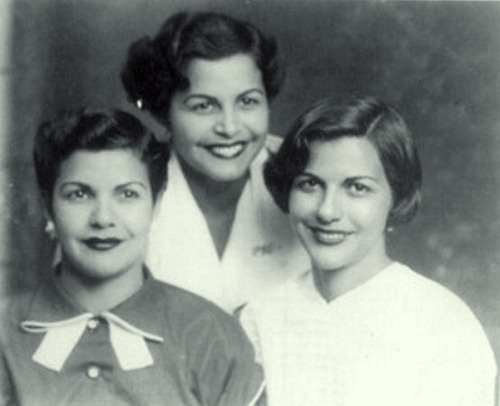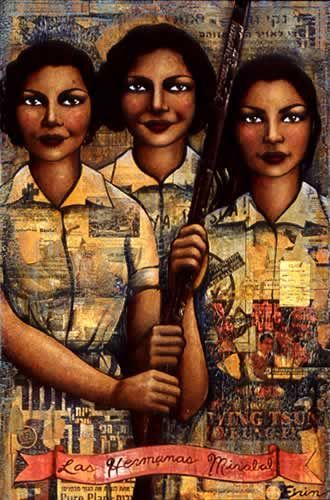
Today’s badass women are a move out of my normal go-to woman: usually, as you are probably aware, I lean towards authors and literary figures, especially of Spanish or Latin/South American descent, and while today the latter is true, these women were not authors. They were revolutionaries.
Although I should note that I read about them in the amazing book, “In the Time of the Butterflies” by Julia Álvarez. Most of my women come from books, as that’s my preferred method of finding information. 😉
Back to the agenda. The Mirabal sisters were Dominican revolutionaries who fought against the dictatorship of Rafael Trujillo in the 1950s (a dictatorship militarily supported by the good ole USA, by the way). Let’s be honest upfront, they did not have a happy ending. Three of the four sisters were assassinated by Trujillo for their participation in activities against his regime. After their death, they became symbols of the fight for Dominican freedom and also for feminism in the Dominican Republic.
The three sisters who were more involved in the fight against the dictatorship, and thus were murdered, were Patria, Minerva and María Teresa. The final sister, who died in 2014, was called Dedé, and while the other three went to university and had careers out of the home, Dedé was more traditional, a housewife who helped run the family farm.
Patria, Minerva and María Teresa formed a group called the 14th of June Movement, named as such after a massacre that had taken place on that day, and they distributed pamphlets about the people who had been killed by the regime and also collected weapons for a future revolt.
Bigger than all of their actions combined, however, was their assassination, which, it can be said, ultimately led to the assassination of Trujillo himself six short months later. The Dominican people loved the sisters, who were referred to as “las mariposas” or “the butterflies,” and their assassination was a tipping point for the nation.
In a nation where women by law had to listen to their husbands, where it was understood that their place was in the home (although some women, like the sisters, did have careers), and where men ruled everything, what the sisters did was incredible. Not only did they stand up for their country, but for women everywhere. They showed women that they didn’t have to take everything sitting down; anyone can do something to shove off an unjust ruler.
And the repercussions that the sisters had can still be felt today. As I mentioned above, there is a fictionalized book written about their lives, as well as a movie of the same name and a documentary named “Code Name: Butterflies”. What we know of today as the International Day Protesting Violence Against Women (November 25th) was created in their honor. They are also featured on the 200 peso note, and murals dedicated to their memory have sprung up all over the country.

The fourth sister also cannot be forgotten. After her sisters’ deaths, Dedé rasied their six children, in addition to her three own, created a foundation and opened a museum in their names, and participated in the documentary about their lives. She lived in their family home until her death at the age of 88.
It is women like these who I admire and whom I love to read about. If you have any suggestions about women you admire, pass them my way!